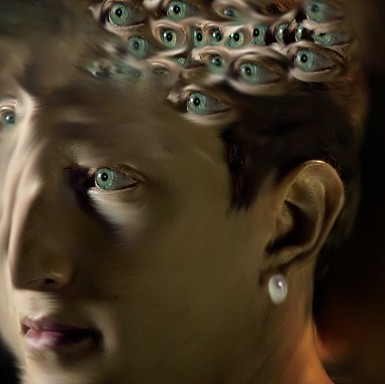Course taught @ Hampshire College, January 2015.
about the course
peer-to-peer (p2p) is often thought alongside vague ideas of ‘the commons’ and ‘the sharing economy,’ or in terms of online piracy and crowd-sourcing. but what is p2p, really? what is it not? and more importantly, what do p2p-like networks imply as a cultural model for exchanging our creative and our political efforts, our labor and our love? where did these network models come from, and where are they taking us?
one of three courses sponsored by the five college digital humanities initiative, this jan-term course engages contemporary appropriations of network models, with emphases on peer-to-peer in art, labor, and policing practices. a brief set of readings and artworks will give context to the historical emergence of networks, describe specific cultural instances of their use in social, political, and creative life, and explore the implications of “p2p” on the future of network solidarity. recent articles from al jazeera and dis magazine, essays by franco ‘bifo’ berardi, alexander galloway, hito steyerl, and jean baudrillard, and works by various contemporary artists and activists will be explored with the goal of finding new language to discuss peer-to-peer versus cloud networks and their affects.
about the p2p reader
other than preparing for and participating in each session, the only assignment for this workshop is crafting a piece for a collective “p2p reader.” works should be somewhere between 1 and 4 pages (single–spaced) in length, and can be written and/or visual in nature. possible examples include: a thought piece on cop watch (sousveillance) networks, an interview with a sex cam worker, an etymological study of “protocol,” an art critique of a twitter bot, or a painting of what the web 8.0 might look like. pieces should be rigorous/imaginative, short/concise and printable/.pdf-able.
schedule & syllabus
day 1 | p2p / invisible hands
- watch in class: internet.org. “all of us.” uploaded as a youtube campaign.
- alexander galloway. “form.” protocol: control after decentralization.
- tiqqun. “the cybernetic hypothesis part i.”
- claire cain miller. “how social media silences debate.” the new york times.
day 2 | networks & neoliberalism
- watch in class: milton freidman on the making of a pencil. uploaded to youtube.
- tiqqun. “the cybernetic hypothesis part iii.”
- geert lovink. “whose democracy? ngos, information societies and non-representative democracy.” organized networks.
- !mediengruppe bitnik. “random darknet shopper.”
- recommended: richard barbrook and andy cameron. “the californian ideology.”
day 3 | finance / language / subjectivity
- franco ‘bifo’ berardi. “emancipation of the sign: poetry and finance during the twentieth century.” from e-flux journal.
- franco ‘bifo’ berardi. “soul work.” depletion design: a glossary of network ecologies.
- brian kuan wood. “is it love?” e-flux journal.
- hans bernhard, lizvlx, alessandro ludovico &paolo cirio “google will eat itself.”
day 4 | freedom from everything
- watch in class: opening sequence to yojimbo by akira kurosawa.
- watch in class: george michael. “freedom! ‘90.” music video uploaded to youtube.
- tiziana terranova. “new economy, financialization and social production in the - web 2.0.” crisis in the global economy: financial markets, social struggles, and new political scenarios.
- tiqqun. “the cybernetic hypothesis part vi.”
- hito steyerl. “freedom from everything: freelancers and mercenaries.” wretched of the screen.
- andrew norman wilson. “workers leaving the googleplex.”
- ian cheng. “3d models looking for work.”
day 5 | #ftp: can solidarity emerge in networks?
- jedediah purdy. “teenage riot.” n+1 magazine.
- puck lo. “in gentrifying neighborhoods, residents say private patrols keep them safe.” al jazeera america.
- jason li. “how the umbrella ‘revolution’ meme hurt the movement in hong kong.” dis magazine.
- adrianne jeffries. “native american tribes adopt bitcoin-like currency, prepare to battle us government.” the verge magazine.
- laurel ptak. “wages for facebook.”
day 6 | …the end of the social
- watch in class: the big bang theory sitcom without laugh track. youtube video.
- jean baudrillard. “in the shadow of the silent majorities” (through page 30.) in the shadow of the silent majorities, or the end of the social and other essays.
- jesse darling. “post whatever: on ethics, historicity, &the #usermilitia.” you are here: art after the internet. reproduced on rhizome.org.
- molleindustria. “phone story.” game for android and web.
day 7 | illegibility / fog / refusal
- watch in class: queer technologies. “facial weaponization suite.”
- caroline bassett. “silence, delirium, lies?” unlike us reader.
- zach blas. “queer darkness.” depletion design: a glossary of network ecologies.
- lyly. “my apparatus.” model view culture.
- recommended: alexander galloway. “black box black bloc.” communization and its discontents: contestation, critique, and contemporary struggles.
day 8 | democracy & post-representation
- alex williams and nick srnicek. “#accelerate manifesto for an accelerationist politics.” criticallegalthinking.com.
- hito steyerl. “the politics of post-representation.” interview with marvin jordan for dis magazine.
- alexander galloway and eugene thacker. “appendix: notes for a liberated computer language.” the exploit: a theory of networks. (at the very end of the .pdf!)
- amalia ulman. “stock images of war (trailer).” uploaded to youtube.

